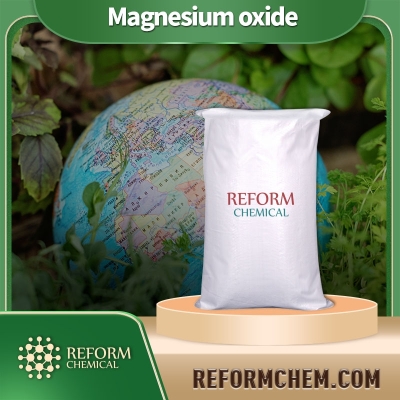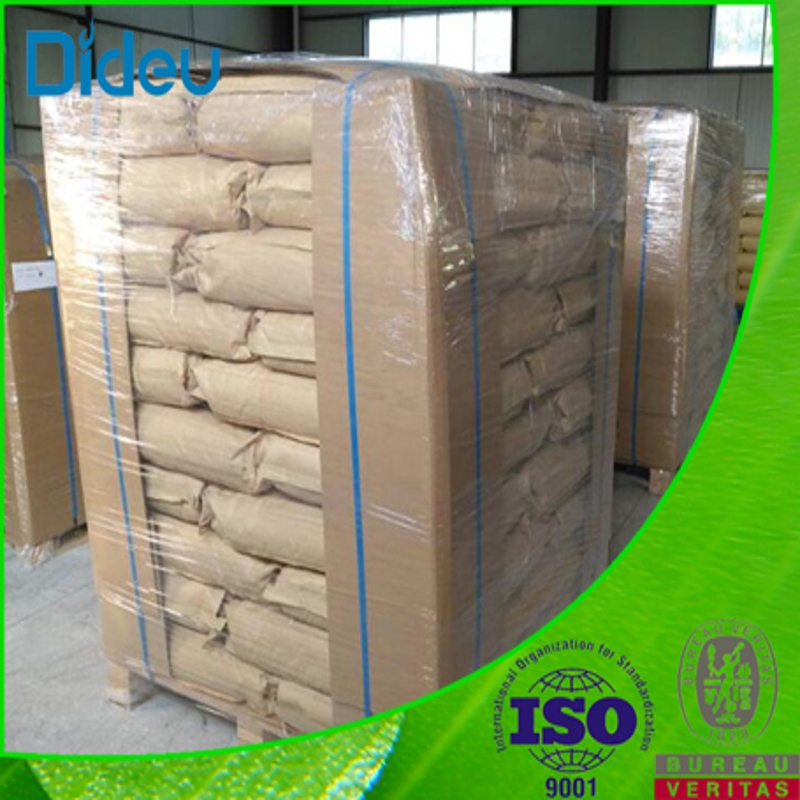-
Categories
-
Pharmaceutical Intermediates
-
Active Pharmaceutical Ingredients
-
Food Additives
- Industrial Coatings
- Agrochemicals
- Dyes and Pigments
- Surfactant
- Flavors and Fragrances
- Chemical Reagents
- Catalyst and Auxiliary
- Natural Products
- Inorganic Chemistry
-
Organic Chemistry
-
Biochemical Engineering
- Analytical Chemistry
-
Cosmetic Ingredient
- Water Treatment Chemical
-
Pharmaceutical Intermediates
Promotion
ECHEMI Mall
Wholesale
Weekly Price
Exhibition
News
-
Trade Service
▎The content team editor of WuXi AppTec.
Colorectal cancer is the second leading cause of cancer death worldwide.
People with a history of colorectal polyps are at higher risk of colorectal cancer.
Endoscopic screening can reduce the incidence and mortality of colorectal cancer by excluding precancerous lesions (ie, colorectal polyps).
It is known that people with a family history of colorectal cancer will have an increased risk of the disease; however, there is a lack of previous studies to determine whether a family history of colorectal polyps increases the risk of colorectal cancer.
Recently, a study published in the British Medical Journal (The BMJ) found that the immediate family members of patients with colorectal polyps have an increased risk of colorectal cancer.
Screenshot source: The BMJ official website.
In this case-control study, a total of 68,060 colorectal cancer patients and 333,753 control groups were included.
The researchers counted the number of subjects with colorectal polyps in the immediate family, the histological type of the polyps, and the age at diagnosis of the immediate family to analyze the changes in the risk of colorectal cancer; in addition, the family history of colorectal polyps and the colorectal polyps The family history of rectal cancer was analyzed for synergy.
After adjusting for family history and other covariates, it was found that compared with those without colorectal polyps in their immediate family, the risk of colorectal cancer in people with colorectal polyps in their immediate family was increased by 40% (OR=1.
40).
Among them, people with immediate family members suffering from hyperplastic polyps have a 23% increased risk of colorectal cancer, and those with immediate family members suffering from tubulovillous adenomas have a 44% increased risk of colorectal cancer.
In order to better understand this risk, the researchers estimated the age-specific absolute risk of colorectal cancer based on the national incidence of colorectal cancer in Sweden in 2018 and the family history of polyps.
In individuals 60-64 years of age with a family history of colorectal polyps, the absolute risk of colorectal cancer is: 94.
3 cases per 100,000 men, 89.
1 cases per 100,000 women, and no colorectal cancer.
Among the 60-64-year-old individuals with a family history of polyps, the incidence of colorectal cancer in men and women was 67.
9 cases per 100,000 and 64.
1 cases per 100,000, respectively.
Image source: The increase in the number of immediate relatives of 123RF suffering from polyps and the lower age of the immediate relatives at the time of polyp diagnosis (P<0.
001), will significantly increase the risk of colorectal cancer, especially early onset diagnosed before the age of 50 Colorectal cancer.
Specifically: ≥2 immediate family members with colorectal polyps, the risk of colorectal cancer increased by 70%; when the immediate family members were less than 50 years old, they were diagnosed with polyps, and the risk of colorectal cancer increased by 77%.
≥2 immediate family members who are diagnosed with colorectal polyps before the age of 50, the risk of early-onset colorectal cancer will increase by 2.
34 times.
The results of the comprehensive impact analysis of colorectal polyps and colorectal cancer in relatives showed that: ≥2 immediate family members who have polyps but no colorectal cancer, then the risk of colorectal cancer in their relatives will increase by 79%; 1 immediate family member has colorectal cancer but If there is no polyp, the risk of family members' colorectal cancer will increase by 70%; if there are 2 or more immediate family members who have polyps and colorectal cancer at the same time, the risk of family members' colorectal cancer will increase significantly by 4 times.
The researchers concluded that after adjusting the family history of colorectal cancer, the siblings and children of patients with colorectal polyps have a higher risk of colorectal cancer, especially early-onset colorectal cancer.
If someone in your immediate family has colorectal polyps, you can consider early screening for colorectal cancer.
According to existing guidelines, if there are ≥2 immediate family members with polyps, or the immediate family members are very young when they are diagnosed with polyps, most people do not recommend early screening.
However, this new study shows that these people have an increased risk of colorectal cancer, so these people may benefit from early screening.
Related reading "Blood Test" Early Screening for Colorectal Cancer! Benchmark Medical and the Zhongshan Sixth Hospital team published a non-invasive detection model study "The Lancet": 63% less polyp recurrence in high-risk groups, aspirin is expected to prevent colorectal cancer "The Lancet": Aspirin prevents colorectal cancer in high-risk groups, with long effects 10-20 years NEJM: Double the progression-free survival, Keytruda single-agent first-line treatment of specific colorectal cancer trial published References: Song M, Emilsson L, Roelstraete B, Ludvigsson JF (04 May 2021).
Risk of colorectal cancer in first degree relatives of patients with colorectal polyps: nationwide case-control study in Sweden BMJ 2021; 373:n877 doi:10.
1136/bmj.
n877 Note: This article aims to introduce the progress of medical and health research, not a treatment plan recommendation.
If you need guidance on treatment plans, please go to a regular hospital for treatment.
Colorectal cancer is the second leading cause of cancer death worldwide.
People with a history of colorectal polyps are at higher risk of colorectal cancer.
Endoscopic screening can reduce the incidence and mortality of colorectal cancer by excluding precancerous lesions (ie, colorectal polyps).
It is known that people with a family history of colorectal cancer will have an increased risk of the disease; however, there is a lack of previous studies to determine whether a family history of colorectal polyps increases the risk of colorectal cancer.
Recently, a study published in the British Medical Journal (The BMJ) found that the immediate family members of patients with colorectal polyps have an increased risk of colorectal cancer.
Screenshot source: The BMJ official website.
In this case-control study, a total of 68,060 colorectal cancer patients and 333,753 control groups were included.
The researchers counted the number of subjects with colorectal polyps in the immediate family, the histological type of the polyps, and the age at diagnosis of the immediate family to analyze the changes in the risk of colorectal cancer; in addition, the family history of colorectal polyps and the colorectal polyps The family history of rectal cancer was analyzed for synergy.
After adjusting for family history and other covariates, it was found that compared with those without colorectal polyps in their immediate family, the risk of colorectal cancer in people with colorectal polyps in their immediate family was increased by 40% (OR=1.
40).
Among them, people with immediate family members suffering from hyperplastic polyps have a 23% increased risk of colorectal cancer, and those with immediate family members suffering from tubulovillous adenomas have a 44% increased risk of colorectal cancer.
In order to better understand this risk, the researchers estimated the age-specific absolute risk of colorectal cancer based on the national incidence of colorectal cancer in Sweden in 2018 and the family history of polyps.
In individuals 60-64 years of age with a family history of colorectal polyps, the absolute risk of colorectal cancer is: 94.
3 cases per 100,000 men, 89.
1 cases per 100,000 women, and no colorectal cancer.
Among the 60-64-year-old individuals with a family history of polyps, the incidence of colorectal cancer in men and women was 67.
9 cases per 100,000 and 64.
1 cases per 100,000, respectively.
Image source: The increase in the number of immediate relatives of 123RF suffering from polyps and the lower age of the immediate relatives at the time of polyp diagnosis (P<0.
001), will significantly increase the risk of colorectal cancer, especially early onset diagnosed before the age of 50 Colorectal cancer.
Specifically: ≥2 immediate family members with colorectal polyps, the risk of colorectal cancer increased by 70%; when the immediate family members were less than 50 years old, they were diagnosed with polyps, and the risk of colorectal cancer increased by 77%.
≥2 immediate family members who are diagnosed with colorectal polyps before the age of 50, the risk of early-onset colorectal cancer will increase by 2.
34 times.
The results of the comprehensive impact analysis of colorectal polyps and colorectal cancer in relatives showed that: ≥2 immediate family members who have polyps but no colorectal cancer, then the risk of colorectal cancer in their relatives will increase by 79%; 1 immediate family member has colorectal cancer but If there is no polyp, the risk of family members' colorectal cancer will increase by 70%; if there are 2 or more immediate family members who have polyps and colorectal cancer at the same time, the risk of family members' colorectal cancer will increase significantly by 4 times.
The researchers concluded that after adjusting the family history of colorectal cancer, the siblings and children of patients with colorectal polyps have a higher risk of colorectal cancer, especially early-onset colorectal cancer.
If someone in your immediate family has colorectal polyps, you can consider early screening for colorectal cancer.
According to existing guidelines, if there are ≥2 immediate family members with polyps, or the immediate family members are very young when they are diagnosed with polyps, most people do not recommend early screening.
However, this new study shows that these people have an increased risk of colorectal cancer, so these people may benefit from early screening.
Related reading "Blood Test" Early Screening for Colorectal Cancer! Benchmark Medical and the Zhongshan Sixth Hospital team published a non-invasive detection model study "The Lancet": 63% less polyp recurrence in high-risk groups, aspirin is expected to prevent colorectal cancer "The Lancet": Aspirin prevents colorectal cancer in high-risk groups, with long effects 10-20 years NEJM: Double the progression-free survival, Keytruda single-agent first-line treatment of specific colorectal cancer trial published References: Song M, Emilsson L, Roelstraete B, Ludvigsson JF (04 May 2021).
Risk of colorectal cancer in first degree relatives of patients with colorectal polyps: nationwide case-control study in Sweden BMJ 2021; 373:n877 doi:10.
1136/bmj.
n877 Note: This article aims to introduce the progress of medical and health research, not a treatment plan recommendation.
If you need guidance on treatment plans, please go to a regular hospital for treatment.







